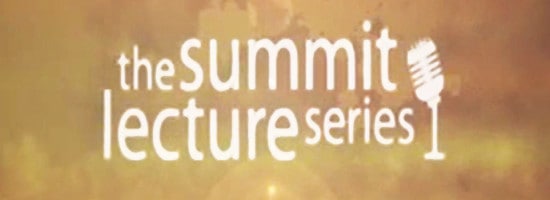
To purchase the entire DVD set of the Summit Lecture Series, visit summit.org.
Moral Rules are a product of intelligence. That is, they need a Mind behind them.
So what sort of intelligence could this be?
It must be the sort of being Who could be the ground for natural moral law. That’s basically “fancy philosopher talk” for: If I believe that it is wrong to take people’s property from them without their permission, and you agree, to whom do I owe the duty not to steal? The answer is each and every person. I have the moral duty not to steal from ANYBODY.
But, to whom do I owe the duty to obey the Moral Law?
Think of it in terms of American law. There is a government that provides laws for us. So, if the government’s laws say that burglary is a crime, then I owe that duty to my neighbors and I should not burglarize my neighbors’ homes. But, in terms of obeying the law, as such, it’s the government’s authority that grounds the federal law.
That is why, when the government prosecutes somebody, the legal case is documented as “The People vs. ___________”.
Therefore, the Being Who is the intelligence behind the natural moral law must be the sort of Being to which we all owe a duty, and also is the ground for the moral law. That is to say, it comes from His intellect.
Also, this Being could not be or possess a finite intelligence. This Being must exist beyond our human understanding of time, so that we will be compelled to obey His moral law.
And it can’t simply be a more powerful Being, which compels us to obey out of His sheer force. There is a significant difference between obeying because you are threatened and obeying because it is the right thing to do.
Nor can this Being be contingent, or reliant upon something else for its existence.
There’s only one Being Who could fit this description, and that is God.
God is the only Being Who is self-existent, perfectly good, has the juridical authority to issue judgments, and is the sort of Being to Whom we owe a duty to obey.
This is why, prior to the nineteenth century, virtually no one thought that you could have the moral law without God.
As philosopher Richard Taylor said:
“A duty is something that is owed, but something can be owed only to some person or persons. There could be no such thing as a duty in isolation. The concept of a moral obligation is unintelligible apart from the idea of God – the words remain, but the meaning is gone.”